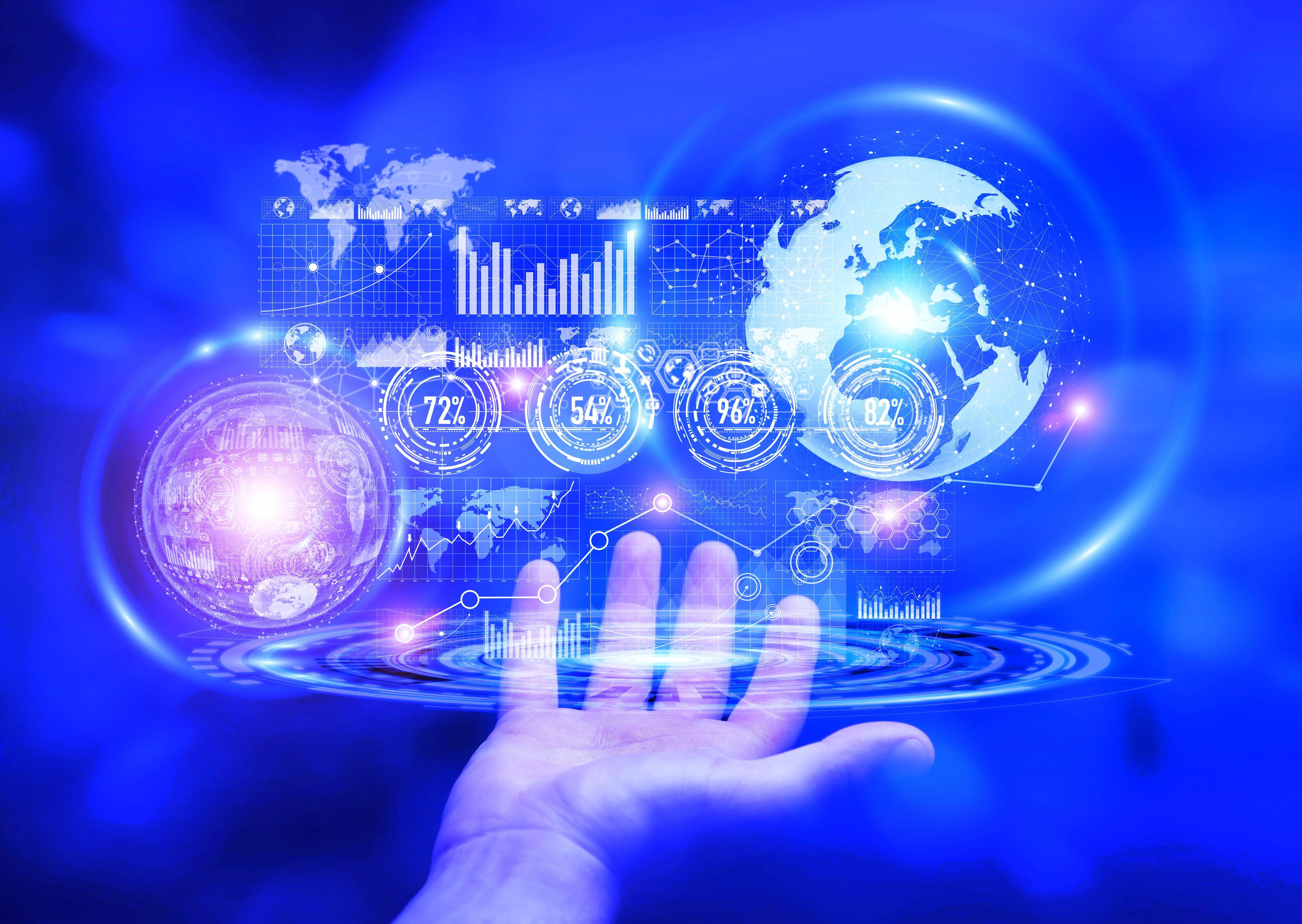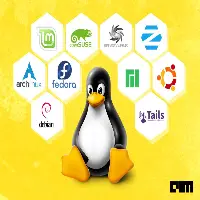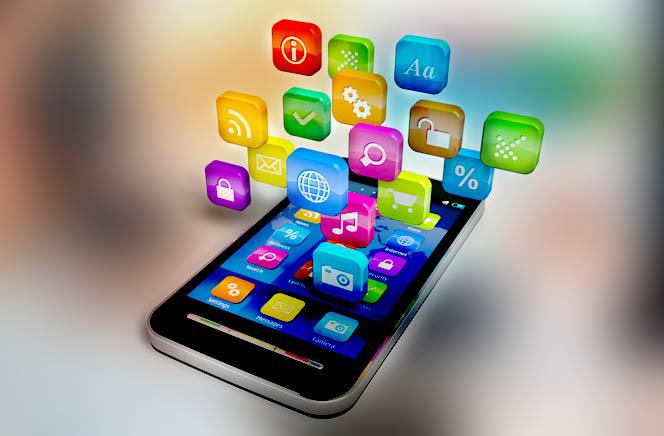From AI to IoT: Understanding the Cutting-Edge Technologies of Today
Category: Future Tech
Date: May 2023
Views: 1.24K
Introduction
In the rapidly evolving world of technology, it can be difficult to keep up with the latest developments. As we move into 2024, there are several emerging mobile technology trends that are poised to have a significant impact on various industries. These trends include:
5G Networks - with faster download and upload speeds, 5G networks will enable new capabilities and applications for mobile devices.
Augmented Reality (AR) and Virtual Reality (VR) - these technologies offer immersive experiences in fields such as entertainment, education, and training.
Wearable Technology - from fitness trackers to smartwatches, wearable devices are becoming increasingly sophisticated and offer new opportunities for health monitoring and lifestyle management.
Artificial Intelligence (AI) and Machine Learning (ML) - AI and ML are powering intelligent applications and enabling automation in various industries.
Internet of Things (IoT) - IoT devices are becoming ubiquitous, offering new opportunities for data collection and analysis in areas such as home automation, smart cities, and supply chain management.
In this article, we will explore these and other emerging mobile technology trends in greater detail, examining their potential applications and impact on various industries. By staying up-to-date with these trends, businesses and individuals can position themselves for success in the years to come.
5G Networks
5G networks represent the latest generation of mobile communication technology. With faster download and upload speeds, lower latency, and increased capacity, 5G networks will enable new capabilities and applications for mobile devices. Some potential applications of 5G networks include:
Mobile Payments - 5G networks will allow for faster and more secure mobile payments, enabling consumers to complete transactions more quickly and easily.
Autonomous Vehicles - with 5G networks, autonomous vehicles will be able to communicate with each other and with infrastructure in real-time, improving safety and efficiency.
Smart Transportation - 5G networks will enable more efficient and sustainable transportation systems, with real-time data sharing and communication between vehicles and infrastructure.
Smart Retail Technology - retailers will be able to use 5G networks to create personalized, real-time shopping experiences for customers, such as augmented reality product displays and real-time inventory tracking.
As 5G networks become more widely available, businesses and individuals will need to adapt to take advantage of these new capabilities. However, it's also important to consider potential cybersecurity and privacy concerns that may arise with the increased use of mobile devices and data transfer.
4. Wearable Technology
Wearable technology has come a long way since the first smartwatches were introduced. Today, wearables have become an integral part of our lives, and they are only going to get better in 2024. Wearables are devices that can be worn on the body, and they are designed to collect data, track our activity, and provide us with useful information. Some of the most popular wearables on the market today include fitness trackers, smartwatches, and smart glasses.
Here are some of the ways wearable technology is likely to evolve and impact our lives in 2024:
Improved Health Monitoring: With the help of wearables, we will be able to monitor our health more closely than ever before. Wearables can track our heart rate, blood pressure, and other vital signs, and provide us with valuable insights into our health.
Enhanced Fitness Tracking: Fitness tracking is already a popular use case for wearables, and this trend is only going to continue in 2024. Wearables will be able to track our workouts more accurately, and provide us with personalized coaching and feedback.
New Form Factors: Wearable technology is not limited to watches and fitness bands. In the future, we can expect to see wearables that are integrated into our clothing, jewelry, and even our skin.
Improved User Interfaces: As wearables become more advanced, we can expect to see improved user interfaces that make it easier to interact with these devices. This could include new types of displays, haptic feedback, and voice commands.
Expanded Use Cases: Wearables are already being used in a variety of industries, including healthcare, fitness, and entertainment. In 2024, we can expect to see wearables being used in even more industries, such as manufacturing and logistics, where they can help improve efficiency and safety.
5. Artificial Intelligence (AI) and Machine Learning (ML)
Artificial Intelligence (AI) and Machine Learning (ML) are two technological fields that are rapidly evolving and have the potential to transform various industries, including the mobile industry. AI refers to the ability of machines to perform tasks that typically require human intelligence, such as speech recognition, decision-making, and natural language processing. On the other hand, Machine Learning (ML) refers to the ability of machines to learn and improve their performance without being explicitly programmed.
The mobile industry is already leveraging AI and ML in various applications, such as virtual assistants, image and speech recognition, predictive maintenance, and personalized advertising. In the future, AI and ML are expected to play an even more significant role in the mobile industry, enabling the development of intelligent applications that can analyze vast amounts of data and provide valuable insights to businesses and consumers alike.
Tech giants like Microsoft and Google have released their own AI-powered language models (LLVMs) that are competing with ChatGPT. These LLVMs, which include Bing Search's "Turing Universal Language Model for Information Retrieval" and Google's "Bard" are capable of generating human-like responses to natural language queries. With Elon Musk also announcing the development of his own "TrueGPT," it's clear that there is a fierce competition in the race for the most advanced LLVMs. These advancements in AI and ML have far-reaching implications across industries, from improving customer service through chatbots to automating complex decision-making processes in finance and healthcare.
6. Internet of Things (IoT) and Smart Homes and Cities
The Internet of Things (IoT) refers to the network of physical objects, such as devices, vehicles, and buildings, that are embedded with sensors, software, and other technologies to collect and exchange data over the internet. This technology has the potential to revolutionize the way we live and work by improving efficiency and convenience in various settings, such as homes and cities.
Smart homes and cities are two applications of IoT that have gained significant traction in recent years. Smart homes use IoT devices to automate and control various aspects of the home, such as lighting, heating, and security. This technology can improve energy efficiency and provide convenience to homeowners. Smart cities, on the other hand, use IoT devices to optimize and manage various aspects of urban life, such as traffic, waste management, and public safety.
The potential benefits of IoT and smart homes and cities are vast, but there are also concerns about privacy and security. As more devices are connected to the internet, the risk of cyberattacks and data breaches increases. Therefore, it is important for companies and individuals to take measures to ensure the security of their IoT devices and data.
7. Edge Computing and Quantum Computing
As mobile devices and IoT devices become more prevalent, the need for efficient computing has increased. Edge computing is a technology that involves processing data at the edge of a network, closer to where the data is generated, rather than transmitting it back to a central server. This can lead to faster processing times and lower bandwidth usage, making it ideal for applications that require real-time processing, such as industrial automation, healthcare, and gaming.
On the other hand, quantum computing is a technology that uses quantum-mechanical phenomena to perform operations on data. It has the potential to solve complex problems that traditional computers cannot handle efficiently. Quantum computing can be applied in areas such as finance, drug discovery, and climate modeling.
While edge computing and quantum computing are different technologies, they can complement each other. Edge computing can provide real-time data processing while quantum computing can handle complex calculations. Together, they can create a powerful combination that can transform various industries.
In the next few years, we can expect to see more advancements in both edge computing and quantum computing. As mobile devices and IoT devices become more prevalent, the need for efficient computing will only increase, making edge computing a critical technology. Meanwhile, quantum computing is still in its infancy, but it has the potential to revolutionize various industries in the coming years.
8. Autonomous Vehicles and Smart Transportation
Autonomous vehicles and smart transportation are rapidly changing the way we travel. Self-driving cars, trucks, and buses are no longer the stuff of science fiction. With the advancements in artificial intelligence, machine learning, and Internet of Things (IoT), autonomous vehicles are becoming a reality. These vehicles can communicate with each other and with smart traffic systems to make travel safer, more efficient, and more environmentally friendly.
Smart transportation systems, including connected vehicles, intelligent transport systems, and advanced traffic management systems, are designed to enhance mobility and safety on our roads. They utilize IoT devices and sensors to collect data and provide real-time information to drivers and transportation planners. This data can be used to optimize routes, reduce congestion, and improve the overall travel experience.
As autonomous vehicles and smart transportation systems continue to evolve, they will have a profound impact on our society. They have the potential to reduce accidents, improve accessibility, and create new opportunities for mobility. At the same time, they also raise important ethical and legal questions, including issues related to privacy, security, and liability.
9. Cybersecurity and Privacy Concerns
As the world becomes more reliant on technology, cybersecurity and privacy concerns have become increasingly important. With the rise of IoT, cloud computing, and other technologies, there are more opportunities for hackers and cybercriminals to gain access to sensitive information.
One of the biggest concerns is the security of personal information. With more people using online services to conduct their daily lives, it's important to ensure that personal data is protected from potential cyber-attacks. Companies need to take appropriate measures to secure their users' data and prevent data breaches.
In addition, privacy concerns have also become more prevalent. With the use of AI and other technologies, there are concerns about the collection and use of personal data without individuals' consent. It's important to strike a balance between the benefits of using technology and protecting users' privacy rights.
As technology continues to evolve, it's crucial to stay aware of potential cybersecurity and privacy risks and take appropriate measures to mitigate them. This includes regularly updating software and systems, using strong passwords and authentication methods, and implementing encryption and other security measures. It's also important for individuals to be aware of the data they share online and take steps to protect their privacy.
10. Digital Ethics and Responsibility
As technology continues to advance at an unprecedented pace, it is important to consider the ethical and social implications of its widespread use. From privacy concerns to the impact on jobs and society as a whole, digital ethics and responsibility have become increasingly important topics in the tech industry. In this section, we will explore some of the key issues and considerations related to digital ethics and responsibility.
Key issues
Here are some of the key issues related to digital ethics and responsibility:
Privacy and data protection: With the increasing amount of personal data being collected and shared online, protecting privacy has become a major concern. It is important for companies and individuals to be aware of the potential risks and take steps to protect personal data.
Bias and discrimination: As AI and machine learning technologies become more prevalent, it is important to consider how they are being used and whether they are perpetuating bias and discrimination. For example, facial recognition technology has been criticized for being less accurate for people with darker skin tones.
Transparency and accountability: It is important for companies to be transparent about their use of technology and how they are using data. They should also be held accountable for any negative consequences that may arise from their use of technology.
Digital divide: The digital divide refers to the gap between those who have access to technology and those who do not. This can have significant implications for education, job opportunities, and economic growth.
Responsibility in tech
As creators and users of technology, it is important for individuals and companies to take responsibility for its impact on society. Here are some ways that responsibility can be fostered in the tech industry:
Ethical design: Designers and developers should prioritize ethical considerations in their work, ensuring that technology is not harmful to users and does not perpetuate bias or discrimination.
Collaboration: Collaboration between different stakeholders, including governments, companies, and civil society, can help to ensure that technology is developed and used in a responsible manner.
Education: Education is key to promoting digital literacy and ensuring that people understand the potential risks and benefits of technology.
Regulation: Governments and regulatory bodies can play a key role in ensuring that technology is developed and used in a responsible manner. This can include setting standards for data protection, privacy, and transparency.
Overall, digital ethics and responsibility are crucial considerations as technology continues to advance and shape our world. By taking a proactive and responsible approach, we can ensure that technology is used to benefit society as a whole.
Conclusion
As we have seen, the technology landscape is constantly evolving and reshaping our world. From AI and machine learning to extended reality and smart homes, these technologies are transforming the way we live, work, and play. With the increasing adoption of IoT devices and the rise of cloud computing, we are entering a new era of connectivity and data-driven decision-making.
However, as we continue to push the boundaries of what is possible, we must also consider the ethical and social implications of these technologies. Digital ethics and responsibility are more important than ever, and we must strive to ensure that technology is used to enhance human well-being rather than exploit it.
As we look to the future, it is clear that technology will continue to play a pivotal role in shaping our world. Whether it is through autonomous vehicles, predictive analytics, or quantum cryptography, the possibilities are endless. By staying informed and adapting to these changes, we can embrace the potential of technology and build a better tomorrow.














0 Comments, latest